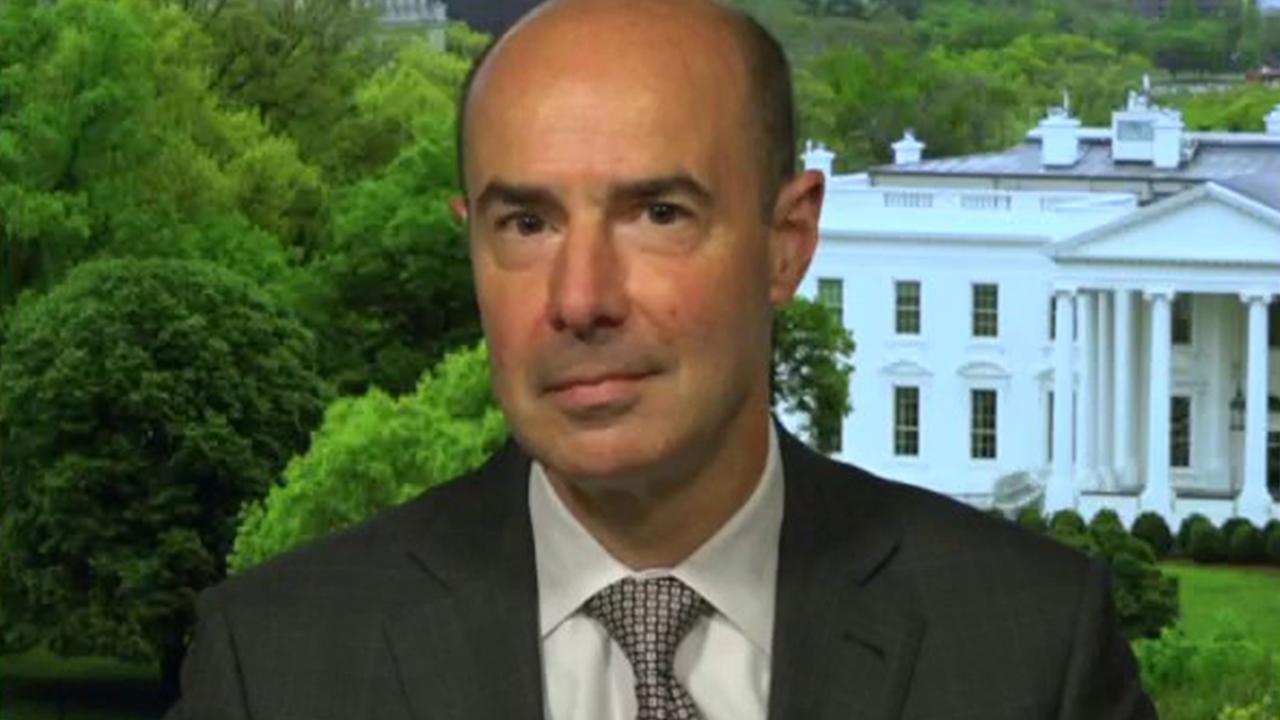Au pairs ensnared by work visa ban
Ban comes as requests for au pairs have exploded after families were suddenly left without child care amid school and day care closures
The Trump administration’s temporary ban on work visas has left thousands of parents, expecting the help of an au pair, searching for child care.
TRUMP LIMITS WORK VISAS: WHAT TO KNOW ABOUT AFFECTED PROGRAMS
The executive order signed last month includes au pairs in its six-month ban on a slate of employment-based visas, a move the administration said is meant to prevent immigrants from taking jobs Americans can fill. Au pairs, the administration says, are a clear example: Their jobs can be filled by American nannies or unemployed day-care workers.
Approximately 20,000 young people, primarily women, work in the U.S. each year as au pairs, according to the State Department, which regulates the program. They come to the U.S. to do nanny and household work in exchange for room, board and a modest weekly stipend, and many arrive in August and September before the U.S. school year begins. Au pairs are exempt across most of the country from minimum-wage laws, making them a more affordable option than full-time babysitters.
The ban comes as requests for au pairs have exploded, say people in the industry. Families that had never considered the option before were suddenly left without child care when schools and day cares shut down because of the new coronavirus. And the idea of a live-in nanny appealed to parents who worried about the spread of the virus from people entering and leaving their homes.
TRUMP TO PAUSE CERTAIN WORK VISAS FOR REST OF 2020: WHITE HOUSE OFFICIAL
At the same time, the supply of au pairs had already diminished under pandemic conditions. Because of travel bans and embassy closures, many who were scheduled to arrive in the spring or summer were grounded in their home countries or unable to obtain visas. Some who were already in the U.S. chose to return home to be with their families or out of fear that more borders would close as the virus spread.
Taken together, the ban adds to a child-care crisis in the U.S. that has left parents, especially mothers, struggling to figure out how to supervise their children and maintain their jobs at the same time.
The au pair program appealed to Jennifer and Joshua Baca, who had been looking for a child-care solution for their baby daughter. Mrs. Baca had placed her daughter in a day-care program, but the hours didn’t suit her unpredictable schedule as an events coordinator.
COVID-19 RESURGANCE THREATENS TRAVEL REBOUND
Mrs. Baca ran the numbers: A full-time nanny in suburban Virginia would run her family about $45,000 a year. Hiring an au pair, Mrs. Baca estimated, would come closer to $29,000—comparable to her daughter’s day care.
The family settled on a 23-year-old college graduate from Colombia, who wanted to come to the U.S. to improve her English before starting a career in marketing. The Bacas wanted their au pair to teach their daughter Spanish.
“It would give us a little bit more flexibility in our schedules, and she would get that bit of extra cultural impact that we’re missing in our very white community in Virginia,” Mrs. Baca said.
The au pair, Sarah Ovando, was scheduled to arrive in April, but her start date was bumped when the U.S. Embassy in Bogotá shut down and she couldn’t get her visa stamped. Colombia then imposed its own travel ban, forbidding citizens from leaving until Aug. 31. Now, Mr. Trump’s visa suspension means Ms. Ovando might not be able to come until January.
TO FAST-TRACK CORONAVIRUS RECOVERY REPUBLICANS ASK TRUMP NOT TO SUSPEND SEASONAL GUEST WORKER VISAS
Tara Zirker and her husband planned to welcome their new au pair—who had already started building a relationship with their daughters through FaceTime calls—from Mexico in mid-July.
Now Ms. Zirker, who lives in the suburbs of Los Angeles, is seeking an alternative after her current au pair, Martina Luna, leaves later this month.
She doesn’t want to place her children in day care because of the continuing pandemic, and she is wary of the vetting that child-care agencies use to find babysitters. Ms. Zirker said she may have to scale back the hours she puts into her business of providing social-media marketing services for other small companies.
“It’s so ironic—actually what’s in danger here is, I’m desperate to keep my business alive, and now I’m being hampered because my child care is being ripped from me,” she said.
The au pair program was designed as a cultural exchange: host families must provide au pairs space in their home, meals and money toward college. The State Department requires families to pay au pairs at least $195 a week, and some families pay more depending on their state or their agency’s rule.
CLICK HERE TO READ MORE ON FOX BUSINESS
Advocates for tighter borders say the ban will create better-paying jobs for Americans. “I think most people would agree that child-care quality is really important, and we shouldn’t be in a rush to the bottom for wages,” said Jessica Vaughan, director of policy studies at the Center for Immigration Studies, which advocates for reduced immigration.
In Glencoe, Ill., the ban will scuttle the placements of up to 10 au pairs that Debbie Seiler Jha, a local care consultant for Cultural Care Au Pair, had already arranged. Those families “are panicking,” she said. “This was completely unexpected.”
Au pair agencies say a common misperception is that only wealthy families employ au pairs. Among the families that rely on the arrangement are two-earner couples who are health-care workers, military personnel, police officers and others who have unconventional, shift-based schedules, said Jodi McCoy, a regional manager for AuPairCare. Her clients are already making calls to policy makers, hoping the administration will change its mind when it reviews the proclamation this month.
“A typical family is doctors, nurses, essential workers, ironically,” she said.




















